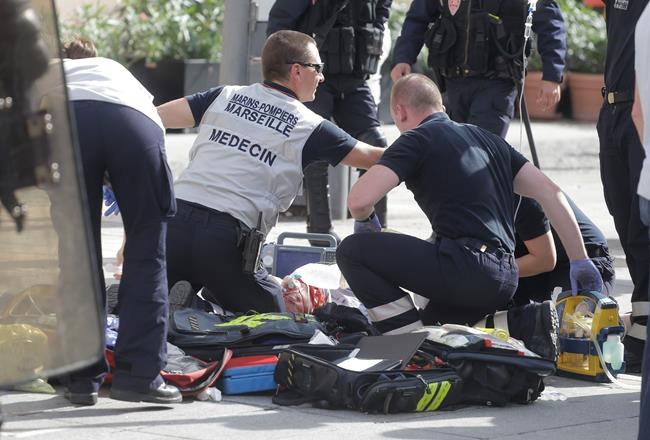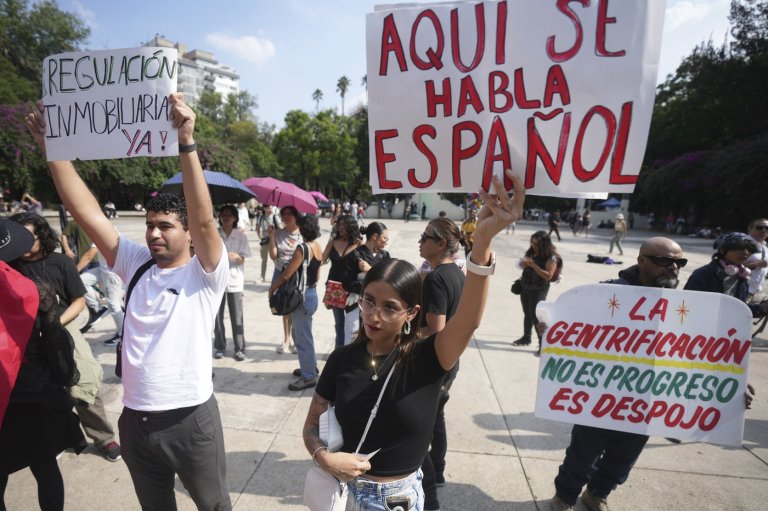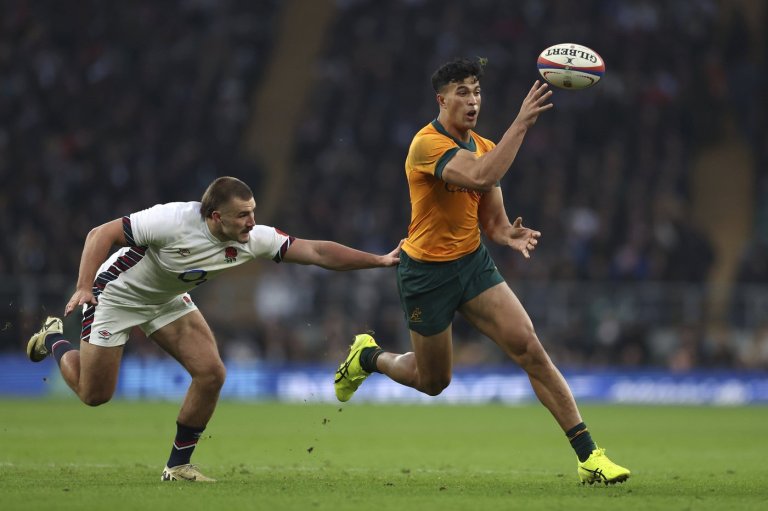
England and Russia fans riot at in Marseille at Euro 2016
MARSEILLE, France – England and Russia fans rioted Saturday at the Old Port in Marseille and outside the city’s Stade Velodrome before the two countries met in a soccer match at the European Championship.
It was the third straight day of violence in the Mediterranean port city, reviving bitter memories of clashes involving England fans at the 1998 World Cup.
Police fired tear gas and water cannons at rioters around the city to rein in violence that authorities said left at least five people injured. Some fans walked through the city bare-chested and with blood dripping from head wounds.
Amid the broken beer bottles and grey clouds of tear gas, families and tourists walked around the picturesque port, sometimes forced to skirt around lines of riot police leaning on their shields. Groups of people watched the chaos from the rear decks of two gleaming white yachts.
French Interior Minister Bernard Cazeneuve said one British citizen was “seriously injured” in the clashes.
“Once again, as over the last 30 years, an international football competition has been the scene of clashes between violent people claiming to be supporters of their national team,” Cazeneuve said in a statement.
UEFA, the governing body of European soccer, also condemned the fans, saying “people engaging in such violent acts have no place in football.”
TV footage showed fans throwing chairs yanked from restaurant terraces and scuffling on a staircase, where one man was seen kicking another one down the stairs. Shortly before the match kicked off, a group of Russia fans ran toward England supporters and started fighting outside the stadium. Riot police fired a water cannon at them and quickly broke up the scuffles.
There was no fighting among fans inside the stadium, where England fans vastly outnumbered Russians.
Each side blamed the other for provoking the violence and England supporters complained that the French riot police did not do enough to halt the fighting.
Alexander Shprygin, head of the All-Russian Fans’ Union, a body with backing from the Russian government and soccer authorities, told The Associated Press by telephone that the police had broken up fights between English and Russian supporters.
“The reason (for the fighting) was that the English are drinking a lot and are behaving badly,” Shprygin said.
Fans of Russian clubs Lokomotiv Moscow and Zenit St. Petersburg were “active” in the fighting, Shprygin said, but would not comment on whether a group of Russian fans had attacked English supporters.
It was the second straight European Championship at which Russia fans have been involved in rioting and comes two years before the country is due to host the World Cup.
Regional police chief Laurent Nunez told French media that five people had been wounded and six people arrested during the fighting.
Two television stations reported that one of those wounded had suffered a heart attack during one of the melees, although they gave no further details.
The clashes brought back memories of bloody fighting between England hooligans, Tunisia fans and locals of North African origin during the World Cup in 1998. Then, hundreds of England fans were involved in violent beach-front clashes with locals in Marseille over two days around England’s match against Tunisia, prompting a headline in a local paper: “Go home hooligans!”
___
Associated Press reporter Andrew Drake and AP Sports Writer James Ellingworth contributed to this report.
Join the Conversation!
Want to share your thoughts, add context, or connect with others in your community? Create a free account to comment on stories, ask questions, and join meaningful discussions on our new site.












Leave a Reply
You must be logged in to post a comment.